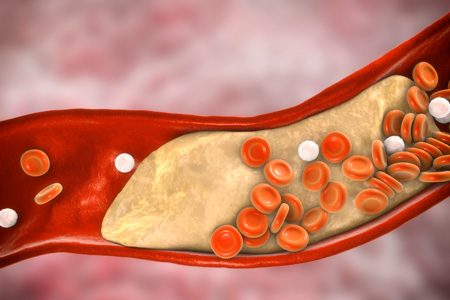Vioxx Side Effects
Vioxx, a pain medication for arthritis, acute pain, and migraine headaches, was pulled from the market in 2004 after a study linked the drug to an increased risk of heart attacks and strokes. Other rare, but serious reactions to the drug included gastrointestinal (digestive tract) bleeding, severe allergic reactions, and kidney and liver problems. More common side effects included fluid buildup in the legs, upset stomach, heartburn and high blood pressure.
Article Continues Below

Board-certified physicians medically review Drugwatch.com content to ensure its accuracy and quality.
Drugwatch.com partners with Physicians’ Review Network Inc. to enlist specialists. PRN is a nationally recognized leader in providing independent medical reviews.
Reviewer specialties include internal medicine, gastroenterology, oncology, orthopedic surgery and psychiatry.
Drugwatch.com has been empowering patients for more than a decade
Drugwatch.com has provided reliable, trusted information about medications, medical devices and general health since 2008. We’ve also connected thousands of people injured by drugs and medical devices with top-ranked national law firms to take action against negligent corporations.
Our team includes experienced medical writers, award-winning journalists, researchers and certified medical and legal experts. Drugwatch.com is HONCode (Health On the Net Foundation) certified. This means the high-quality information we provide comes from credible sources, such as peer-reviewed medical journals and expert interviews.
The information on Drugwatch.com has been medically and legally reviewed by more than 30 expert contributors, including doctors, pharmacists, lawyers, patient advocates and other health care professionals. Our writers are members of professional associations, including American Medical Writers Association, American Bar Association, The Alliance of Professional Health Advocates and International Society for Medical Publication Professionals.
About Drugwatch.com
- Assisting patients and their families since 2008.
- Helped more than 12,000 people find legal help.
- A+ rating from the Better Business Bureau.
- 5-star reviewed medical and legal information site.
Testimonials
"Drugwatch opened my eyes to the realities of big pharmacy. Having a family member with major depression and anxiety, I was looking for information on her medications. I found information that was very helpful, that her psychiatrist never told her."
- Common Side Effects
- Respiratory infections, fluid buildup in legs, high blood pressure, headaches and gastrointestinal discomfort, such as diarrhea, nausea, heartburn and upset stomach
- Cardiovascular Events
- Merck took Vioxx off the market in 2004 because of an increased risk of heart attack and stroke.
- Other Serious Side Effects
- Allergic reactions, kidney impairment and liver problems
Latest Side Effects Information for Vioxx
As of September 2024, heart attack, stroke and other cardiovascular side effects were the most common Vioxx side effects reported to the U.S. Food and Drug Administration. The manufacturers withdrew Vioxx (rofecoxib) from the market in 2004. Despite this, the FDA received 34 side effect reports throughout 2024. Over 20 million people had taken the drug in the five years it was available.
| FDA Adverse Event Reports for Vioxx Side Effects | |
|---|---|
| Total cases reported | 64,408 |
| Serious cases (including deaths) | 48,623 |
| Deaths | 6,639 |
Disclaimer: Reports sent to the FDA don’t necessarily mean the drug caused an adverse event. Consult a health care professional before stopping or changing medication.
“As a pharmacist, I saw Vioxx as a promising new option for arthritis pain with potentially fewer gastrointestinal issues than traditional NSAIDs,” pharmacist manager Sazan Sylejamani, owner of Westmont Pharmacy in Westmont, Ill., told Drugwatch.
“Patients appreciated its targeted action and perceived safety.”
But, cardiovascular side effects quickly accounted for the vast majority of adverse events reported to the FDA.
- Heart attack: 27.68%
- Stroke: 20.73%
- Chest pain: 9.08%
- High blood pressure: 9.05%
- Coronary artery disease: 6.81%
- All other side effects: 26.65%
Though the FDA received only 6,639 reports of deaths after taking Vioxx, studies have suggested the toll was much higher. Multiple reviews estimate Vioxx may have caused the deaths of 27,785 to 60,000 people.
Case Study: Side Effects of Vioxx
In February 2004, Linda Grant, a resident of Chicago, Illinois, started taking 25 mg of Vioxx daily. Her doctor had prescribed this to help Grant manage her pain and inflammation. However, just two months later, in April 2004, Grant experienced a heart attack. A legal complaint filed in an Illinois federal court linked this severe and sudden cardiovascular event to her use of Vioxx. This complaint highlights the dangerous side effects of the drug.
Health Risks
Vioxx was later found to nearly triple the risk of serious heart problems compared to a placebo. These issues include life-threatening conditions such as heart attacks and strokes. At first, patients and providers were not well-informed of Vioxx’s risks. This led many to use the drug without understanding the potential dangers. Grant’s heart attack serves as a stark example of the severe health risks associated with Vioxx.
Conclusion
According to the complaint, Grant’s case highlights the critical need for transparency and thorough testing in the pharmaceutical industry. The discovery of Vioxx’s serious heart risks devastated many patients, like Grant, who suffered severe health issues.
Heart Attack and Stroke Risks of Vioxx
Shortly after Vioxx went on the market, it became clear that the drug posed severe risks to cardiovascular health. Introduced in 1999, Vioxx was withdrawn from the global market in 2004 due to significant safety concerns. The associated risks resulted in numerous Vioxx lawsuits, which took over a decade to fully settle.
Originally, Vioxx was marketed as a safer alternative to traditional nonsteroidal anti-inflammatory drugs (NSAIDs) like ibuprofen and naproxen. Vioxx was intended to ease the symptoms of conditions such as arthritis pain.
One significant study, the VIGOR trial, aimed to compare the gastrointestinal effects of Vioxx with naproxen. However, it uncovered a troubling increase in heart attack risk among Vioxx users compared to those taking naproxen. This finding led to growing concerns about the drug’s cardiovascular risks.
While the drug offered benefits like reduced stomach ulcers compared to other NSAIDs, the heart risks were too high to ignore. The FDA’s safety warnings and subsequent withdrawal reflect the seriousness of these risks.

How Vioxx Raised Cardiovascular Risks
Vioxx increased cardiovascular risks by disrupting the body’s balance of blood-flow regulating chemicals. Blood vessels typically need a balance between clot-prevention and clot-promotion substances to function well.
Vioxx inhibited an enzyme called COX-2. This enzyme sometimes contributes to inflammation and pain. However, blocking COX-2 can also lead to reduced levels of prostacyclin. This compound helps keep blood vessels open and prevents too much clotting. When the prostacyclin balance is disrupted, blood might clot more easily. This increases the risk of serious issues like heart attacks and strokes.
Additionally, Vioxx tends to cause some types of cholesterol to oxidize quickly. This can lead to a buildup of plaque in the arteries.
Besides the VIGOR trial, several other studies showed a significant rise in cardiovascular events among Vioxx users.
“The APPROVe trial found Vioxx doubled the risk of heart attacks and stroke,” Sylejmani said.
“This overturned the belief that COX-2 inhibitors were safer for the heart and led to Vioxx’s withdrawal — my colleagues and I realized we had been too quick to accept a new ‘wonder drug.’”
Other Vioxx Side Effects
Besides heart problems, Vioxx can cause liver and kidney problems, high potassium and rare skin conditions. It may also harm fetuses.
- Liver problems
- Though uncommon, Vioxx has been linked to liver damage. In some cases, patients experienced elevated liver enzymes, which indicate liver stress. Severe cases resulted in jaundice and cholestasis, but these issues improved after stopping the drug.
- Kidney concerns
- Vioxx can harm kidney function, especially in people with existing kidney conditions. Long-term use of Vioxx is associated with kidney injuries due to decreased prostaglandin levels. Your body needs this compound for good kidney blood flow. Kidney risk was higher in patients with dehydration, heart failure or those taking diuretics and ACE inhibitors.
- High potassium levels
- Some Vioxx users experienced increased potassium levels, even in those with normal kidney function. Alterations in the renin-aldosterone system caused this change. This hormone system helps regulate body fluids, blood pressure and electrolyte levels.
- Skin reactions
- Some Vioxx users have reported serious skin conditions such as exfoliative dermatitis, Stevens-Johnson Syndrome (SJS) and toxic epidermal necrolysis (TEN). Although rare, these reactions could be life-threatening and require stopping the drug at the first signs of a rash or skin irritation.
- Pregnancy risks
- Vioxx can pose risks for pregnant people, potentially leading to an early closure of the blood vessel that supplies the fetus with oxygen. Therefore, it's not recommended for use during the last trimester of pregnancy.
In addition, the Vioxx label warned about several other side effects. Those who took Vioxx may have experienced gastrointestinal distress or hypersensitivity.
- Abdominal discomfort
- Diarrhea
- Dizziness
- Drowsiness
- Headache
- Hypersensitivity reactions
- Indigestion
- Itching
- Rash
- Swelling of legs and feet
Despite its initial promise as a safer alternative to traditional NSAIDs, Vioxx’s severe cardiovascular risks and other health complications ultimately overshadowed its benefits. These revelations highlight the importance of thorough drug testing and transparent communication.
“Vioxx’s withdrawal led the FDA to strengthen post-marketing surveillance and issue black box warnings,” Sylejmani said.
“However, even the best trials cannot replicate long-term, real-world use.”
Editor Lindsay Donaldson contributed to this article.
Calling this number connects you with a Drugwatch.com representative. We will direct you to one of our trusted legal partners for a free case review.
Drugwatch.com's trusted legal partners support the organization's mission to keep people safe from dangerous drugs and medical devices. For more information, visit our partners page.


